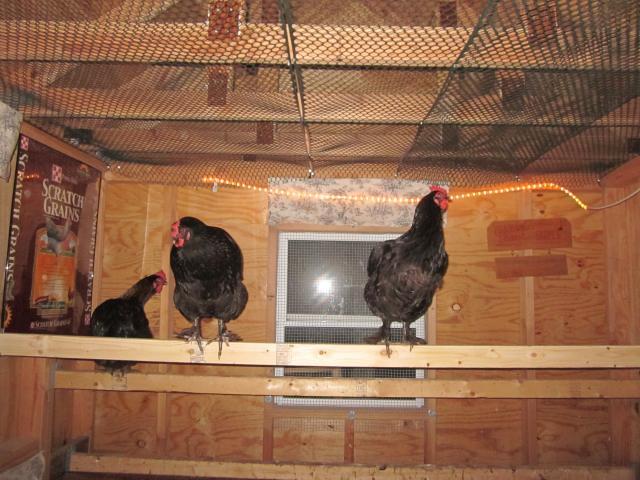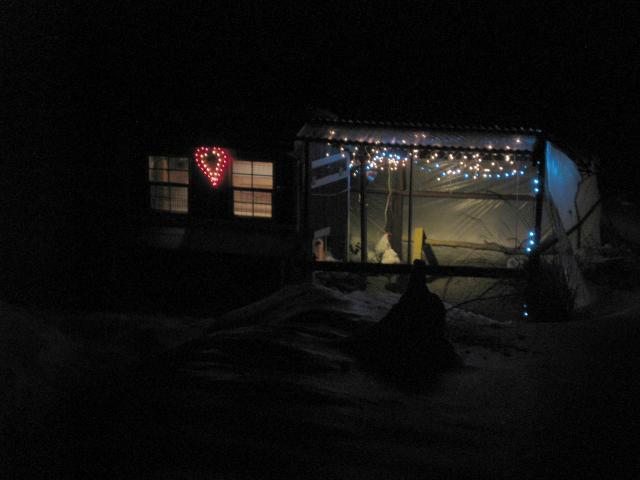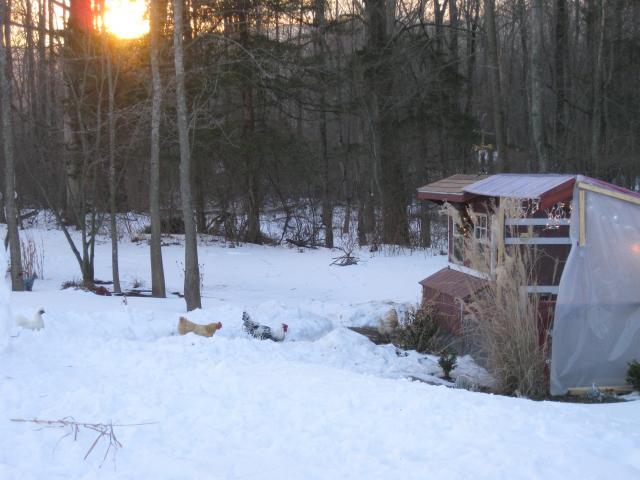You may have noticed a drop in egg production over the past few weeks and that's normal this time of year. Providing supplemental light for your hens is TOTALLY a personal preference. Some folks choose to give the hens a "break" while others prefer adding light to the coop for a few hours a day to promote egg-laying. Again, completely a personal preference. If you choose to add light to your hens' day, here's the text from my blog post that can be found here: http://networkedblogs.com/ncx5f

"Supplemental Light in the Coop
As summer winds down and daylight hours grow shorter, you may notice a decline in your hens egg production. With decreased daylight hours, a hens egg production will decline naturally. Some folks view the change of seasons as a good time for the girls to have a break from egg-laying, others encourage egg-laying in the autumn and winter by providing supplemental light in the coop. Whether to light the coop or not is a personal decision for each chicken-keeper to make.
How does added light encourage egg-production?
A hens ovaries are stimulated to produce eggs by the many glands that comprise her endocrine system and the endocrine system is stimulated by light. Adding supplemental light can fool a hens endocrine system into believing there are 12-14 hours of light in the day, causing the ovaries to produce eggs as it did in the spring and summer months.
When and how to add supplemental light?
Sunlight fades gradually and at dusk chickens prepare to settle into their favorite roosting spots before darkness falls. Chickens have poor night vision and cannot find their roosts in the dark. Adding supplemental light at the end of the day, allows no transition time for them to get positioned for sleeping. This can cause confusion, stress and possible panic leading to injuries. It is better to light the coop in the morning as they will not object to instant sunrise.
Setting a light on a timer that turns on in the early morning hours is the recommended method for lighting the coop. To allow 12-14 hours of light in the day, ccalculate backwards from sunrise to determine how many hours the light should be on. For example, if the goal is to provide 13 hours of light during the day when sunset is at 6pm and sunrise at 7am, the timer should turn the light on at 5am and off at 6:45am. The timer will need to be adjusted every few weeks to keep pace with the solar system.
The amount of light needed will depend upon the size of your coop. The amount of light is not critical, it should just be enough to allow the hens to see inside the coop. I have an 8 x8 coop and I use a 6 foot, incandescent rope light above the roosts, which is enough to simulate sunrise. In my 4x6 coop, I use a small string of Christmas lights in the coop and, since we have an electronic pop door opener, I hang strings of Christmas lights around the run and set the pop door to open when the lights turn on. Festive and functional!"



"Supplemental Light in the Coop
As summer winds down and daylight hours grow shorter, you may notice a decline in your hens egg production. With decreased daylight hours, a hens egg production will decline naturally. Some folks view the change of seasons as a good time for the girls to have a break from egg-laying, others encourage egg-laying in the autumn and winter by providing supplemental light in the coop. Whether to light the coop or not is a personal decision for each chicken-keeper to make.
How does added light encourage egg-production?
A hens ovaries are stimulated to produce eggs by the many glands that comprise her endocrine system and the endocrine system is stimulated by light. Adding supplemental light can fool a hens endocrine system into believing there are 12-14 hours of light in the day, causing the ovaries to produce eggs as it did in the spring and summer months.
When and how to add supplemental light?
Sunlight fades gradually and at dusk chickens prepare to settle into their favorite roosting spots before darkness falls. Chickens have poor night vision and cannot find their roosts in the dark. Adding supplemental light at the end of the day, allows no transition time for them to get positioned for sleeping. This can cause confusion, stress and possible panic leading to injuries. It is better to light the coop in the morning as they will not object to instant sunrise.
Setting a light on a timer that turns on in the early morning hours is the recommended method for lighting the coop. To allow 12-14 hours of light in the day, ccalculate backwards from sunrise to determine how many hours the light should be on. For example, if the goal is to provide 13 hours of light during the day when sunset is at 6pm and sunrise at 7am, the timer should turn the light on at 5am and off at 6:45am. The timer will need to be adjusted every few weeks to keep pace with the solar system.
The amount of light needed will depend upon the size of your coop. The amount of light is not critical, it should just be enough to allow the hens to see inside the coop. I have an 8 x8 coop and I use a 6 foot, incandescent rope light above the roosts, which is enough to simulate sunrise. In my 4x6 coop, I use a small string of Christmas lights in the coop and, since we have an electronic pop door opener, I hang strings of Christmas lights around the run and set the pop door to open when the lights turn on. Festive and functional!"


Last edited:




